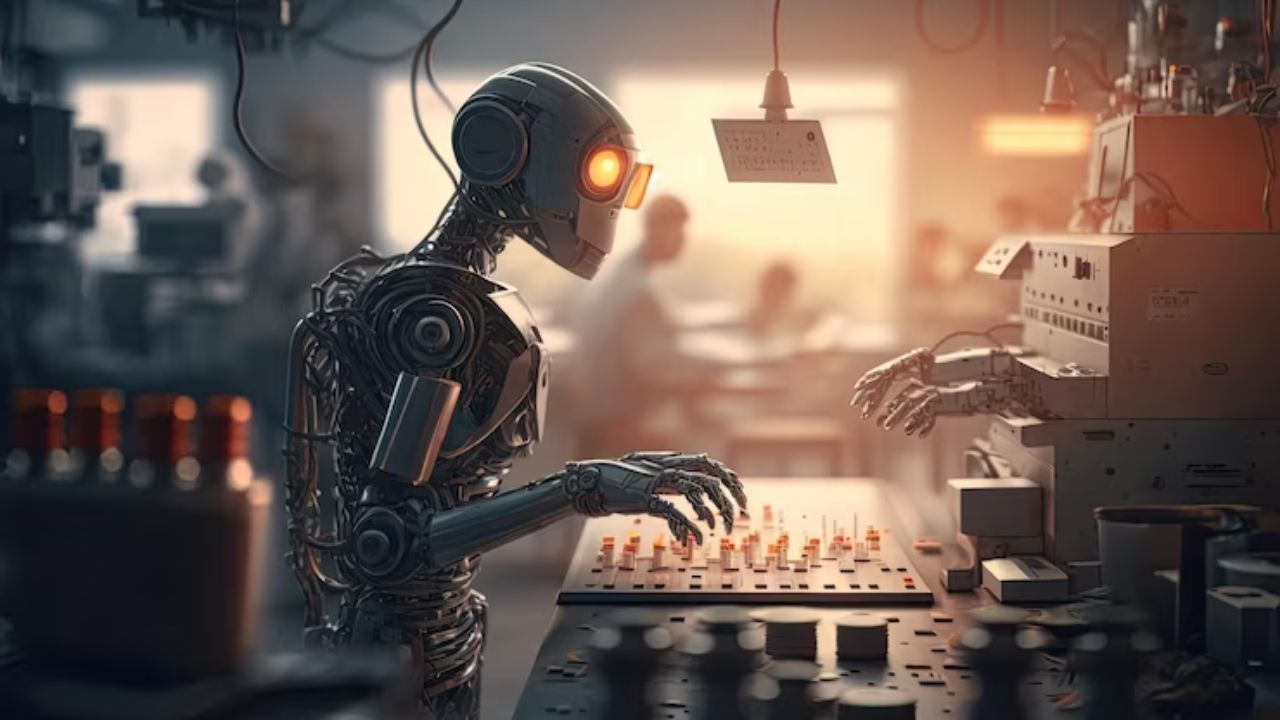A Journey Through Generative AI
Delve into my extensive experience in wholeheartedly embracing Generative AI to gain valuable insights and knowledge you can leverage to your advantage.
Join the DZone community and get the full member experience.
Join For FreeAI has become the talk of the town since ChatGPT made it to the news. With a downfall of 80% for Google, numerous tools use artificial intelligence to their advantage. Regarding the mobile app development industry, AI has introduced innovative trends that have helped the company soar. AI, specifically generative AI, will be discussed in this blog to have a closer look at what it offers. In addition, of course, my experiences as a CEO so all entrepreneurs can add their insights to it. Without further ado, let us get started.
All You Need To Know About Generative AI
Deloitte's Global Mobile Consumer Survey by Statista shows that 65% of smartphone users in 16 developed markets have used machine learning-based apps. Did you know that machine learning is the backbone of artificial intelligence? AI is a concept of enabling machines to sense, reason, act, or adapt like humans. Machine learning (ML) is an AI application that allows machines to extract knowledge from data and learn autonomously.
The two most popular sub-fields of AI are serving as innovation. They are:
- Conversational AI
- Generative AI
Conversation AI vs. Generative AI

For a quick overview, Conversational AI allows machines to communicate naturally with humans, making interactions almost indistinguishable from human conversations. It's used in chatbots, virtual assistants, and messaging apps to improve customer service, simplify business processes, and make interfaces more user-friendly. Examples include Siri, Alexa, and Google Assistant.
On the contrary, Generative AI allows machines to create new content, such as written text, music, artwork, and 3D models. It uses advanced machine learning techniques, including generative adversarial networks (GANs) and transformer models like GPT-4. These models are trained on large datasets and produce meaningful content. For instance, OpenAI's ChatGPT is an example of this technology, as it can generate text similar to a human based on the given input.
The Rise of Generative AI
The journey of Generative AI has been incredible, showing the determination to create machines that can express creativity. Generative AI can be traced back to the early 2010s when researchers started using deep learning techniques to generate data. The development of autoencoders and restricted Boltzmann machines were early milestones that laid the foundation for more advanced generative models.
A significant milestone in the field occurred in 2014 when Ian Goodfellow and his team introduced Generative Adversarial Networks (GANs). GANs changed the game for Generative AI by implementing a unique two-network structure. One network, the generator, creates synthetic data, while the other, the discriminator, determines the authenticity of the generated data. With adversarial training, GANs have become highly effective at generating realistic audio, videos, and images. This breakthrough has boosted the prominence of Generative AI and sparked a wave of research and development.
Generative AI has made significant progress in various fields, such as art, entertainment, fashion, healthcare, and architecture. AI-generated creations are showcased in galleries and auction houses, and virtual worlds have become a mainstay in video games. AI-generated designs and layouts have improved efficiency and creativity in various industries.
Generative AI is rapidly advancing with the help of collaboration between researchers, developers, and artists from various backgrounds. With every breakthrough, Generative AI is expanding the limits of what is achievable, introducing new possibilities for creativity and innovation. As we approach 2023, the growth of Generative AI is showing no signs of slowing down, indicating that it will revolutionize different industries, boost human creativity, and offer unique solutions to the most critical issues faced by society.
The Impact of Generative AI on Industries

Generative AI has transformed the art and entertainment industries, allowing artists to expand their creativity and create captivating machine-generated art. AI-generated works are increasingly popular in various forms of entertainment, blurring the lines between reality and imagination.
Generative AI has transformed marketing and content creation by creating personalized content that caters to individual preferences. This has resulted in increased customer satisfaction and loyalty and more efficient workflows for marketers. AI-powered medical imaging and drug discovery have transformed healthcare, enabling faster treatment results and precise disease detection. These innovations are ushering in a new era of medical advancement.
Why Use Generative AI?
Talking about Generative AI, researchers can use generative AI to access, identify, and correlate data, mine extensive research data for connections, and automate the drafting of clinical trial communications, even translating them into different languages. The field of AI and ML are vast and still yet to be explored.
Developers can enhance user experiences and open new possibilities with generative AI in mobile app development. Below are some of the perks of Generative AI that can give you the clout you need.
Adding Value to App Design and User Experience
With the help of Generative AI, your creative developers can generate AI-powered prototypes, allowing them to explore various design possibilities. They can easily experiment with color themes to find out what they find the most appealing without putting in time. It enables them to create visually appealing and intuitive interfaces faster and highly customizable, enhancing user experiences.
Accelerate Development Cycles by 4x
Who does not want their app development project to finish before the deadline? Well, yes, generative AI can make this possible for you. Using Generative AI, my developers deliver projects at 4x pace, giving us extra time for feedback. Generative AI can speed up development cycles by automating tasks. This is crucial in the fast-paced app market, where being first can make a difference.
Improved Personalization and Customization for Apps
Using technology behind generative AI enables you to delve into the preferences and behaviors of users. You can leverage this by creating unique and personalized app experiences. As developers, we know that we have to add a touch of personalization for the users so they can connect easily. By tailoring the app experience to the specific needs and wants of each user, this level of customization can lead to higher rates of user engagement and satisfaction. Ultimately, this can help drive greater app adoption and retention, resulting in a successful and long-lasting user base.
Deep-Rooted Robust QA
We all know the importance of robust QA. That is how we build a quality benchmark for our clients. In the development process, AI-powered tools are essential for testing to detect and alert developers of potential bugs or glitches. This allows developers to quickly address issues, creating high-quality applications that are more likely to satisfy end-users. Ultimately, this ensures the final product meets the target audience's expectations.
Achieving Optimal Resource Allocation and Code Optimization
Generative AI algorithms help our developers to analyze code patterns quickly. This makes it even easier for them to receive suggestions for optimization. This leads to efficient resource allocation, improving app performance. By utilizing this technology, developers can save computational resources and ensure the optimal utilization of hardware capabilities. AI provides a valuable tool for enhancing app performance and streamlining development.
Examples of Generative AI in Mobile App Development

I've witnessed the transformative power of generative AI in mobile app development, and it's truly remarkable. Let me share with you some instances where we've coupled this technology:
Personalized Content Generation
In my experience, we've seamlessly integrated generative AI into our mobile apps to curate highly personalized content. Imagine this: Our app utilizes cutting-edge generative algorithms to meticulously analyze user preferences, behaviors, and historical data. This analysis then culminates in creating bespoke news articles, product recommendations, or personalized workout routines. This elevates user engagement and fosters a deep sense of connection by delivering content that resonates with each user.
Image and Video Synthesis
One of the most impressive applications of generative AI in our mobile app development is the generation of stunning images and videos. Our social media app, for instance, employs generative AI to craft filters and effects that transform user photos into unique, artistic expressions. Additionally, our e-commerce app harnesses this technology to produce lifelike product images, enabling users to visualize items in different colors or styles before purchasing.
Natural Language Generation for Chatbots
Chatbots have become an integral part of our mobile apps, serving as a lifeline for our users. Through the power of generative AI, our chatbots provide responses that mimic human interaction. This means that they can understand the nuances of user queries, generating responses that are not only relevant but also informative. This, undoubtedly, enhances the overall user experience and contributes significantly to customer satisfaction.
Game Content Generation
Generative AI has dramatically enhanced our foray into mobile game development. It allows us to automatically generate game levels, characters, and various other game assets. Gone are the days of manual, detailed design for every element. Generative AI opens up possibilities, ensuring our mobile games offer dynamic and endlessly varied gameplay. This, in turn, keeps our users thoroughly engaged and entertained.
Music Composition and Remixing
Our mobile apps have become a playground for creativity for those passionate about music creation and remixing, thanks to generative AI algorithms. These algorithms can analyze existing music tracks, decipher intricate musical patterns, and generate entirely new compositions or remixes based on these learned patterns. This empowers our users to experiment with different styles and genres, all without the need for formal music training. Our apps enable users to unleash their creativity and explore new horizons in the music world.
Generative AI has undeniably revolutionized mobile app development, opening doors to innovation and user experiences we couldn't have imagined before. It continues to be a driving force behind our commitment to delivering cutting-edge apps that cater to our user's ever-evolving needs and aspirations.
All Things Considered
Generative AI has profoundly impacted various industries, especially mobile app development. As a CEO, I've seen firsthand its transformative potential.
Generative AI offers personalized content generation, streamlined development cycles, robust quality assurance, and efficient code optimization. It has empowered our team to create innovative user experiences, from customized content to dynamic gaming and music composition.
Beyond app development, generative AI has revolutionized art, entertainment, marketing, and healthcare. It's a versatile tool for researchers, developers, and entrepreneurs, promising endless possibilities. Generative AI will continue shaping industries, enhancing human experiences, and tackling societal challenges as we move forward. Embracing it is essential for staying at the forefront of innovation and delivering exceptional value to users and customers.
Opinions expressed by DZone contributors are their own.

Comments